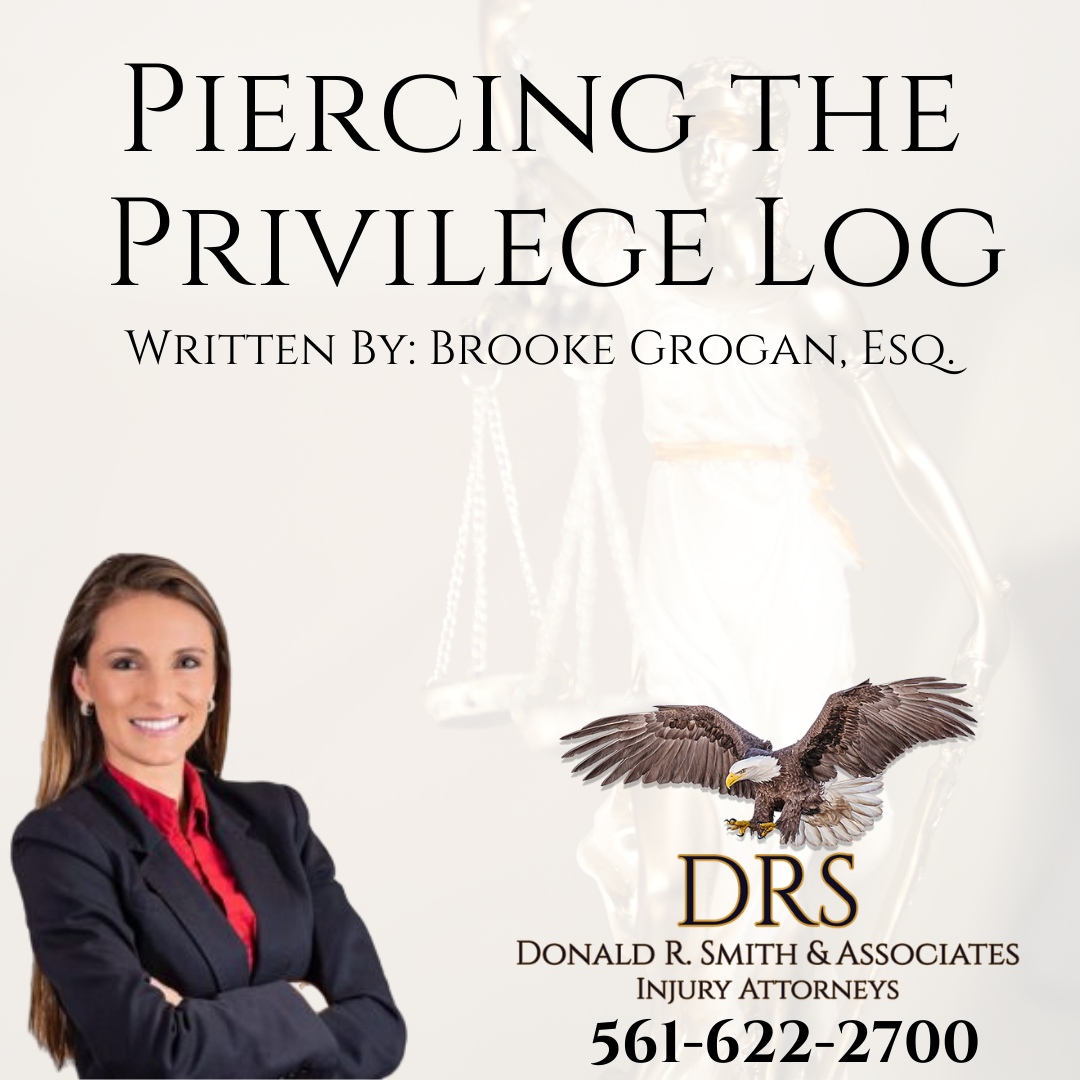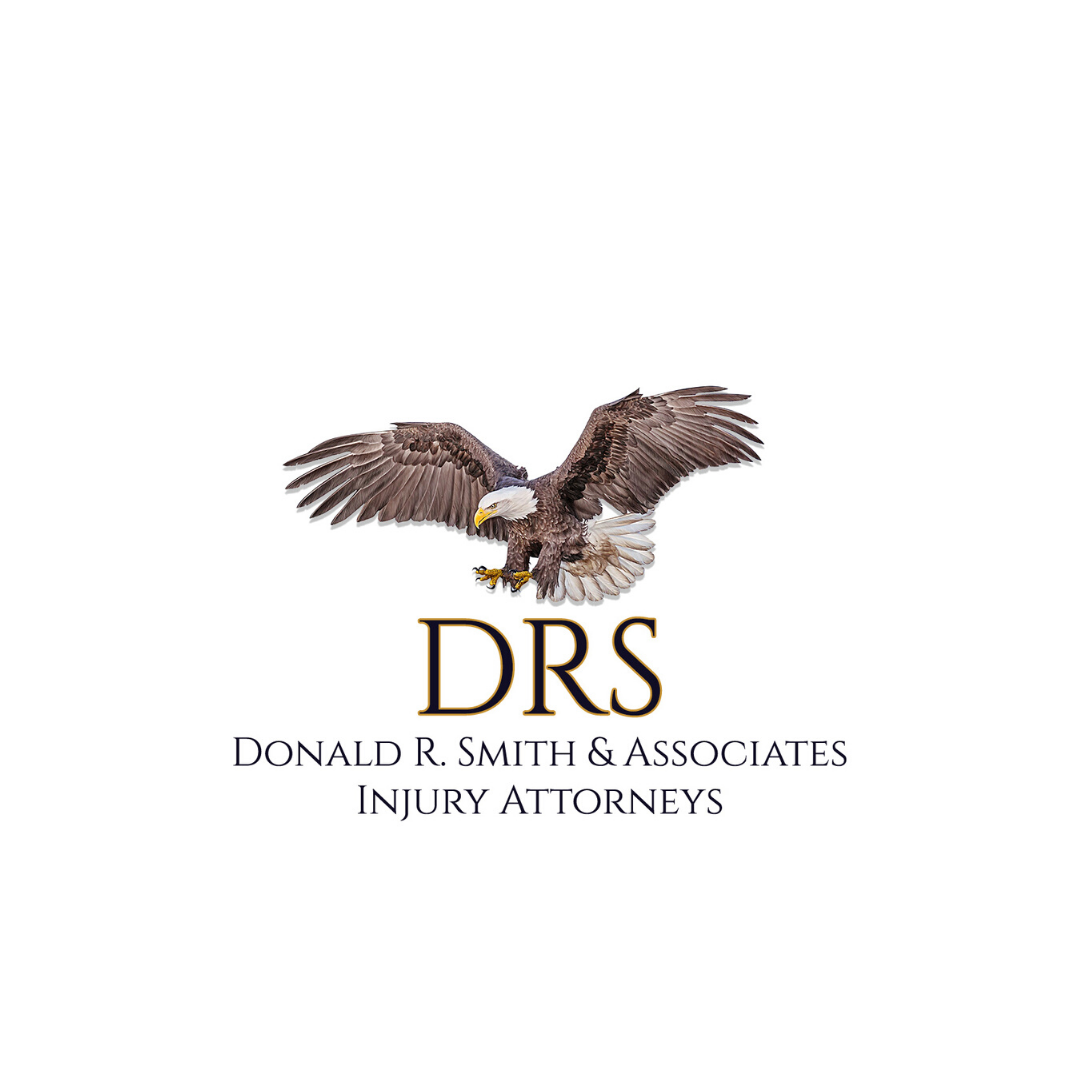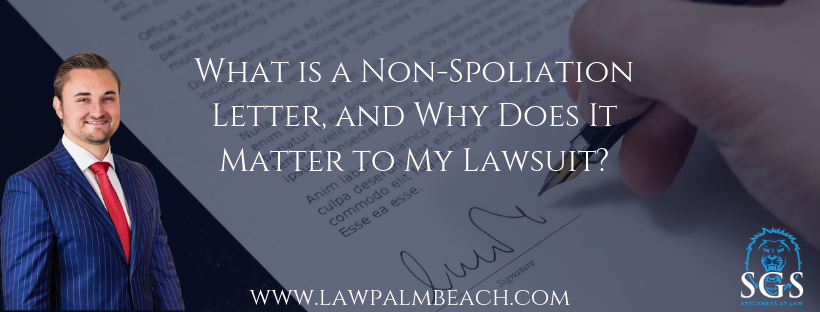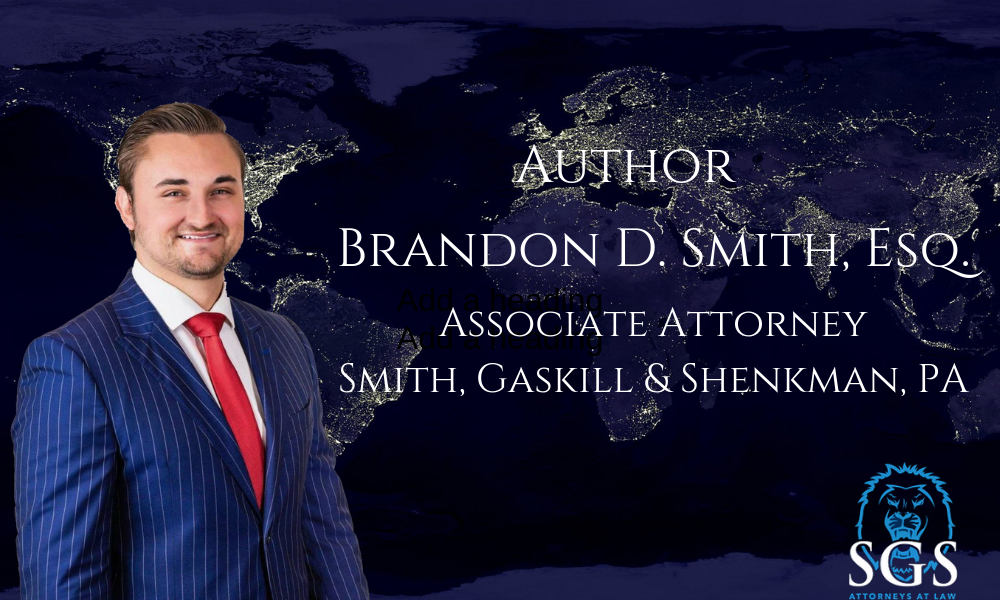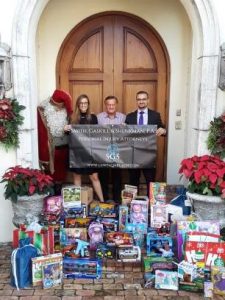In every personal injury litigation case –well in advance of Trial– there is an exchange of information referred to as the “discovery period”. During the discovery period, both parties (Plaintiff and Defendant) exchange information/documents in an attempt to obtain evidence and information to support their case in chief. The discovery period happens in every single personal injury litigation case and is critical to establishing liability, causation, and damages. However, on frequent occasion, we, as Plaintiff attorneys, encounter an obstacle called the “Privilege Log”. The Privilege Log is a document filed by a Defendant that allows the Defendant to withhold certain requested document(s)/item(s), but requires disclosure of certain identifying information relating to the document(s)/item(s). Documents/items usually end up on the Privilege Log (and avoid disclosure) because a Defendant asserts an Objection, such as Work-Product Privilege. An example of a frequent item we see included on a Privilege Log include photographs taken by a Defendant in anticipation of litigation (Work-Product Privilege). However, a good attorney is able to review the Privilege Log for sufficiency and, after a fact-specific analysis, determine if a Motion to Compel Documents should be filed. Depending on the facts of each case, in various situations, documents/items disclosed on a Privilege Log end up being produced, usually after a showing of relevancy, need, and lack of reasonable alternatives. As each personal injury case is different, it is important to hire an attorney that is familiar with the case law relating to Privilege Logs, otherwise, relevant, critical information and documents can be withheld.
